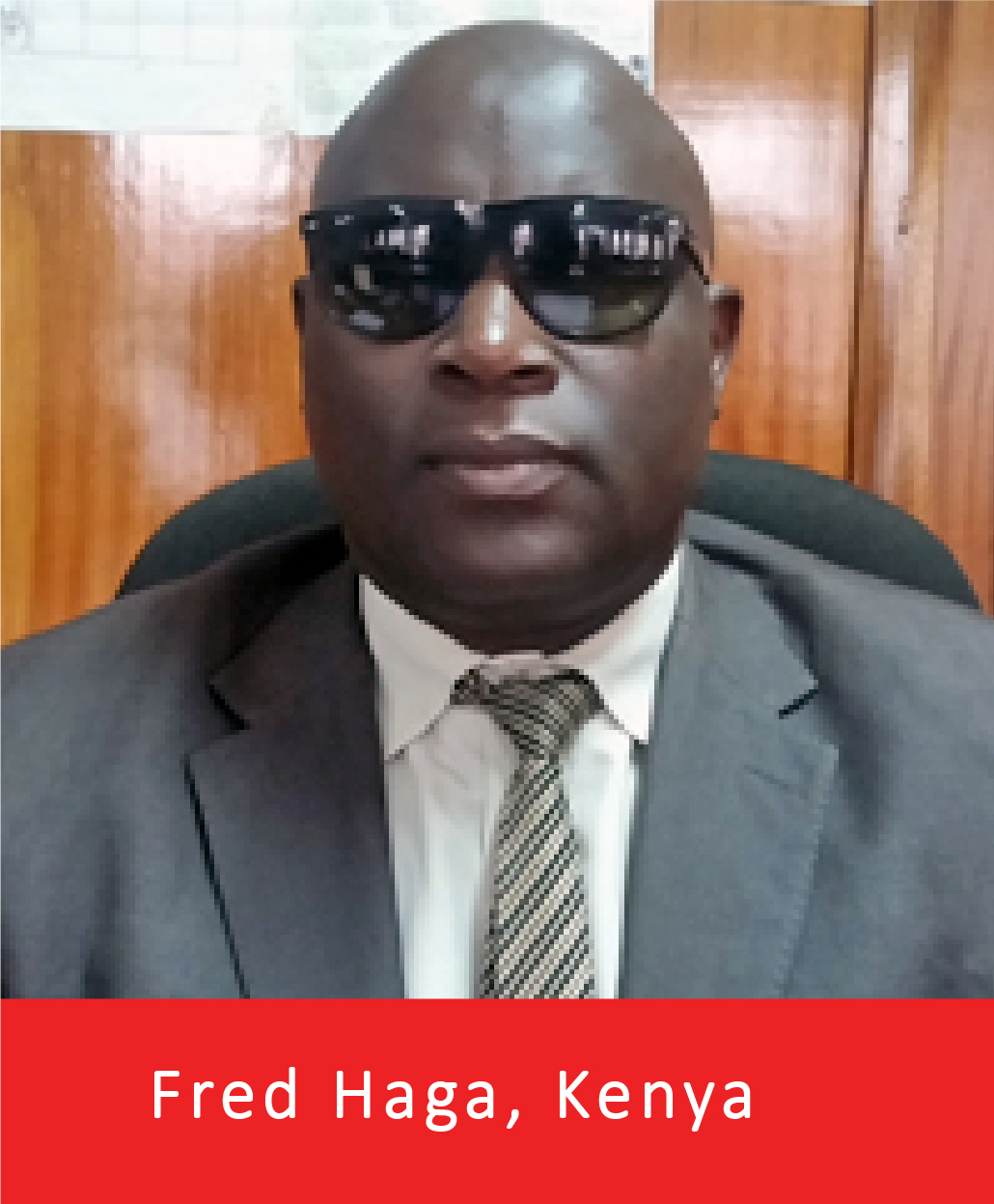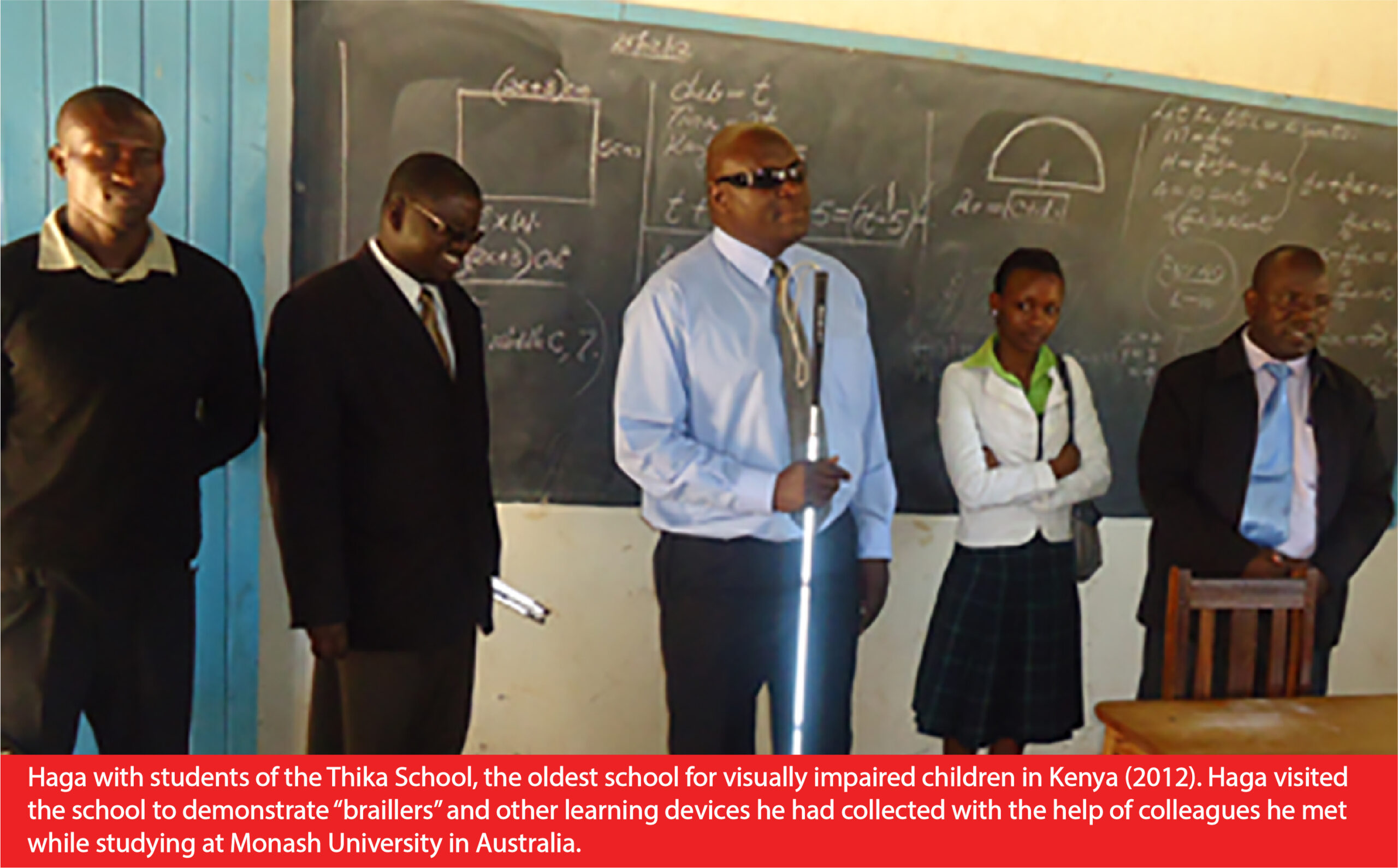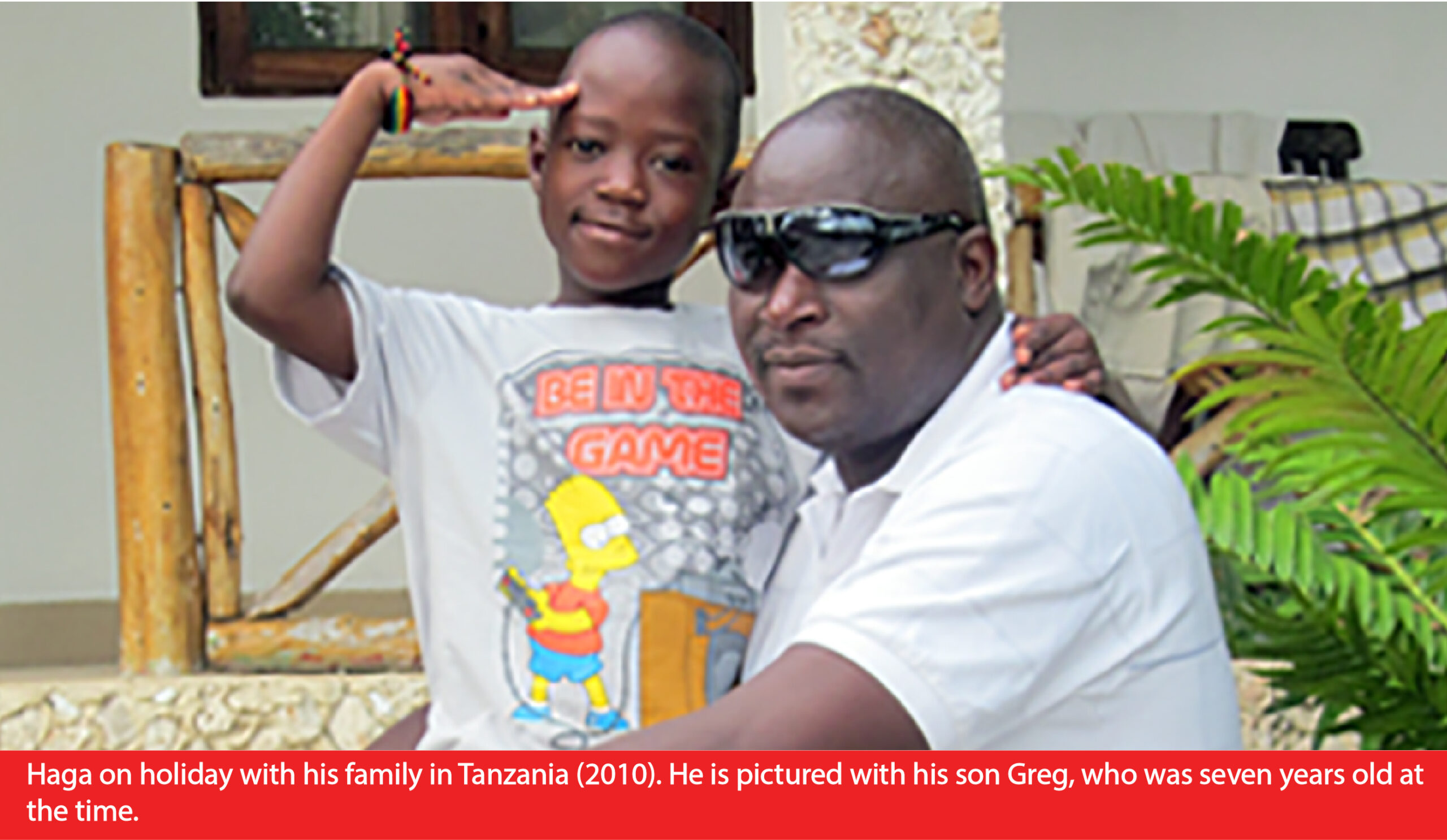Fred Haga, Kenya

Master’s in Special Needs Education Monash University, Australia 2010-2011
Fred Haga grew up primarily in Nairobi, Kenya. In high school, Fred lost his vision, forcing him to drop out. After 7 years out of school, he finally found a school willing to let him complete high school. He went onto obtain an undergraduate degree in education; a choice that he believed would help him improve the circumstances for disabled children in Kenya. Fred later received a Ford IFP fellowship to complete his Master’s in Special Needs Education from Monash University in Australia. Through his current position in the Ministry of Education in Kenya, he recently had the opportunity to complete a fellowship program at the Perkins School for the Blind in Boston, Massachusetts.
We spoke with Fred about his experience being visually impaired in Kenya, and his dedication to improving disability rights and curriculum for visually impaired children in Kenya. The conversation has been edited and condensed for clarity.
What motivated you to apply to the IFP fellowship? How did you think it would help you?
After losing my vision in high school, I felt that I needed to do something for children with disabilities. I was not able to raise the funds necessary to do the program here locally. IFP offered me a chance to overcome the financial barrier and support me through my disability. I thought this graduate degree would give me a better opportunity to help other students who are visually disabled.

What are the biggest challenges facing learners with disabilities in Kenya today?
I’m ashamed to say this, but I think most of the children with disabilities in my country are not in school. So getting them to school is one challenge that we have, and once they get to school, giving them appropriate and relevant intervention programs is another important challenge. Additionally, even if they go to college, there’s a shortage of employment for disabled people, which is another big, big problem.
Have you been able to apply any knowledge that you acquired at Monash University to your work at the Ministry of Education in Kenya?
Yes – one of my current concerns of work is on an expanded co-curriculum that students with disabilities need on top of academic learning. In Australia there is an expanded co-curriculum that we do not have in Kenya. In my position at the Ministry of Education, I am able to talk with teachers and emphasize the need to adopt this expanded co-curriculum. The country is currently reviewing the curriculum and trying to develop a co-curriculum for visually impaired learner that will teach daily living skills, orientation and mobility, social skills, self-advocacy and other related skills.
Tell me more about some of the things you’re working on as part of this fellowship with the Perkins School.
The fellowship was mostly about coming to Perkins, seeing how they do things, and picking up what could be relevant and adopted in Kenya. I am part of the team that coordinates the education program for learners with a disability. These are three main areas of interest that I’m hoping to take back to apply in my work at the Ministry of Education in Kenya: first, I have learned that those who have multiple disabilities may not be academically inclined, but there are adaptations or modifications that allow the students to complete their education despite their limitations.
The second area that is of great interest to me is the evaluation and assessment of function of disability. To effectively come up with an intervention, you really have to understand the limitations of a student because disability is so varied. So, I’m studying how to do an evaluation to plan for educational intervention, because it’s all based on the need of the child. Back in my country, it’s a one-kind-fits-all sort of intervention which is not as effective.
The third area is the employment of assisted technology, both in education and in the daily lives of people with disabilities. While some of the technology in the US was really high-tech and might be out of the reach of Kenya, there are hosts of other low-cost technologies that would open more opportunities for the students.
You mentioned that you volunteer. Can you give me an example of some of the work you’re doing outside of your job with the Ministry of Education?
Yes, I’ve been very involved with the Kenyan Union of the Blind and the African Union of the Blind. We have created employment programs for those who may not have gone on to get a college qualification. I also work with the National Council for People with Disability. We lobby for employment of people with disabilities who have qualifications, college degrees and will be able to get sound employment. When the new constitution was written in 2010, we were able to include a clause that gives a quarter – that’s five percent – of public positions to persons with disabilities. So, we were really happy about that and our work is meant to ensure its implementation.

Do you feel like you’re making progress?
Slowly, but steadily. It’s an attitude issue, and we’re trying to offer people with disabilities more marketable skills so that they’re able to be competitive. The Constitution has made a big difference, because I see more and more people with disabilities now getting positions in the public sector.
Do you think that you’re able to serve as a role model for youth that are visually impaired or other people with disabilities?
Yes – I sometimes get invitations to speak to communities because I am an example of somebody who had the opportunity to go to school, to access higher education, and now I’m in a position of influence. So, I talk to people; I talk to them about taking their kids to school, because in my country, kids who have disabilities are often hidden. I am even able to serve as a role model and advise those who have finished school.
How has the IFP fellowship impacted your future?
I think the fellowship was really a turning point in my life, both at a personal level and at a professional level. In my country, not many people have opportunities to study out of the country. I was able to come back with different stories, experiences, and ways of thinking. I made very important contacts that I still keep today. Now with my current fellowship, I believe I’ll be able to make a contribution professionally and in volunteer work. This fellowship was important for me and I want to believe the Ministry of Education and Disability Rights Movement will benefit from my advice and unique perspective.